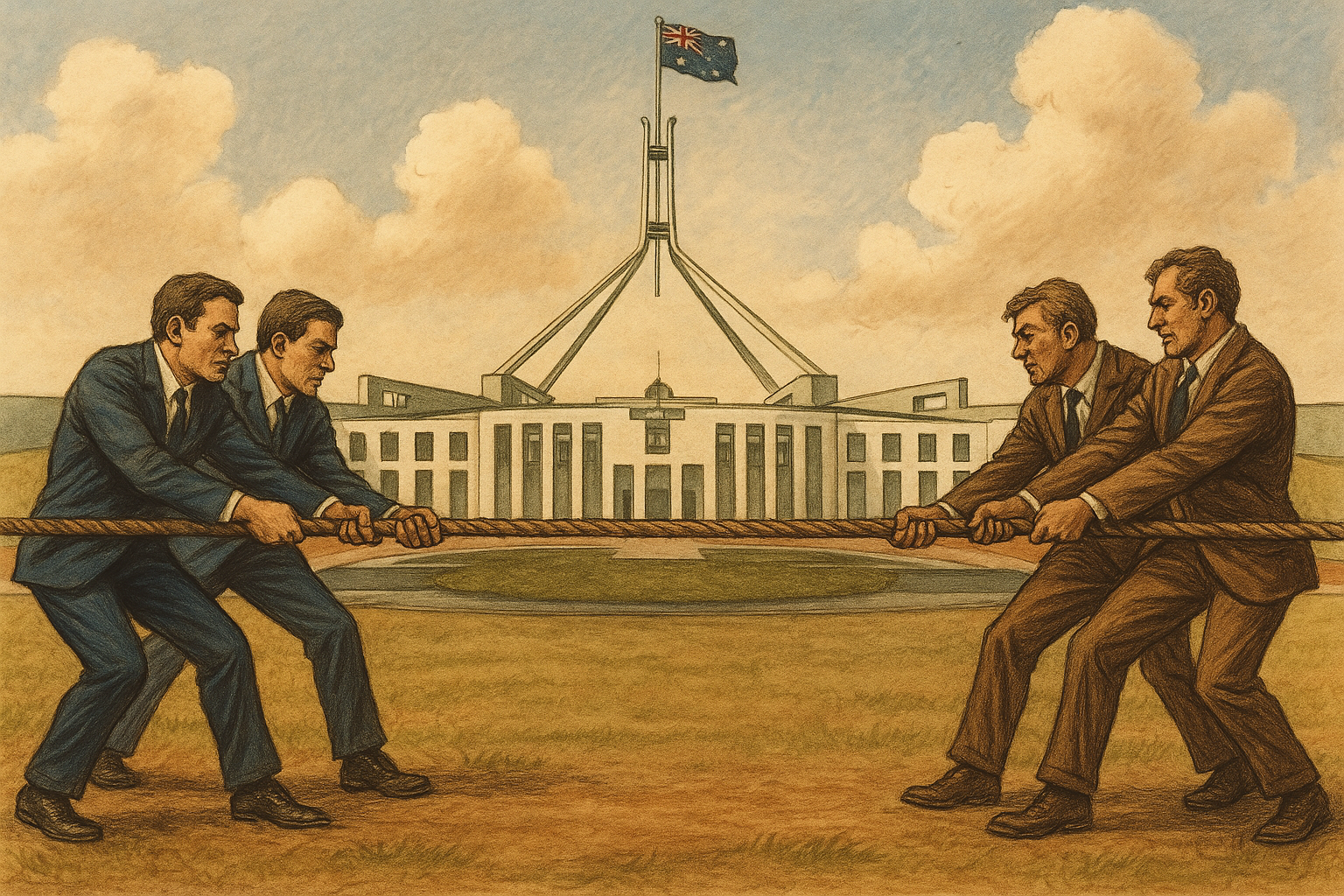The Inside Word

The middle man always wins
Australia’s political system is different to the rest of the world, as distinctive as our landscape and people – something we can all be proud of, and something we should all work hard to preserve.
Just as our native flora and fauna have adapted to thrive in a unique and diverse environment, our democracy has evolved to reflect the values and character of the Australian people.
In recent years, the United States and Australia have stood as striking opposites. While Australia continues to embody political steadiness and institutional trust, the American landscape has become a breeding ground for divisive politics – an environment not only tolerant of polarisation but one that increasingly rewards it.
The root of this contrast exists in the mechanics of democracy itself. In the United States, voting is a choice, not an obligation. That simple distinction reshapes political strategy entirely: the goal is not to attract the majority but to ignite the most passionate at the fringe. The Trump era perfected this tactic, energising the base, amplifying division, and turning devotion into dominance. In a system where participation is optional, 100 fervent supporters outweigh 1,000 passive sympathisers. After all, it is not civic duty that wins elections; it is turnout.
On the other hand, Britain is a nation that shares history, culture and identity with Australia but has lately shown a similar susceptibility to strategies that reward appealing away from the middle. This works because their first-past-the-post electoral system creates a pathway to winning seats by concentrating support among an engaged minority. Target the base, build a fierce core, and a relatively small but highly motivated group can deliver victory in individual constituencies.
However, our system, being such a young democracy was created from the best elements of all others and designed to govern from the middle. Australia remains largely a diverse, equitable country of opportunity, positioned in the middle of politics, where ordinary Australians go to work, live their lives, and raise their families.
Australian democracy is compulsory, comprehensive, and completely unavoidable. Compulsory preferential voting means you don’t just pick your favourite; you rank everyone from most to least desirable. The principle is simple: democracy works best when every vote is cast and every vote counts.
To govern, you have to win the broad, sensible middle – from Airlie to Aberdeen, Brisbane to Bendigo, and Canberra to Canning. So, if any major party is serious about government, they can’t afford to flirt with the far left or the far right.
The allure of riding this so-called popular global wave of extremism is nothing but a mirage — an illusion that points to problems but delivers no solutions.
In Australian politics, unity isn’t just a virtue; it’s a strategy for survival. As the Labor Party presents a steady, united front, the Coalition is stumbling under the weight of internal division and competing ambitions. Internal debate has become a Greek tragedy, played out on the headlines for the nation to see.
Labor’s message has been simple and consistent: stability, delivery, and focus. The party has largely avoided the public infighting that so often erodes voter trust.
By contrast, the Liberal Party, once the emblem of disciplined conservatism, has become a chorus of conflicting voices. The party that long celebrated individualism now struggles to reconcile its internal factions — moderates versus hardliners, city versus regions, progressives versus traditionalists. The result is a brand that feels uncertain, reactive, and increasingly out of step with mainstream Australia.
Australia’s democracy thrives not just on the strength of its government but on the strength of its opposition. Yet today, we see a government united, and an opposition divided. History demonstrates that Australian politics is won in the middle – a system and a people who reward pragmatism over passion and moderation over extremism. In this country, fringe politics is a long walk off a short plank; it has no place and no future here.
Stability wins elections, from Howard’s steady hand to Labor’s disciplined approach today.
The Coalition has always held their ability to speak as their great strength. In the current environment, it’s become their Achilles heel.


